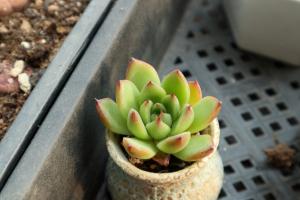Can Gardenia Floor Plants Still Grow if Remain Potted?
Gardenia floor plants are a popular choice for indoor decoration because of their attractive flowers and fragrant scent. However, some people are concerned about whether these plants can still grow if they remain potted for an extended period of time. The answer to this question is yes, gardenia floor plants can still grow if they remain potted. In this article, we will explore the reasons why gardenia floor plants can thrive in pots and how to care for them to ensure healthy growth.
Reasons Why Gardenia Floor Plants Can Thrive in Pots
There are several reasons why gardenia floor plants can thrive in pots. Firstly, potted gardenias can still receive sufficient amounts of sunlight, which is important for their growth. As long as the pot is placed in an area where it can receive adequate sunlight, the plants will continue to grow well. Secondly, gardenia floor plants can also get the right amount of nutrients from the potting soil. By choosing a high-quality potting mix, gardenia floor plants can obtain adequate amounts of nitrogen, potassium, and phosphorus, which are essential for their growth. Lastly, potted gardenias are also protected from pests and diseases that may be present in outdoor soil, which can potentially harm the plants.
Caring for Potted Gardenia Floor Plants
To ensure healthy growth, potted gardenia floor plants require proper care. Here are some tips for taking care of your potted gardenias:
1. Watering
Proper watering is crucial for gardenia floor plants. They require a consistent amount of moisture to thrive, but too much water can cause the roots to rot. Water the plants when the soil feels slightly dry to the touch. Make sure to water until the water runs out of the drainage holes at the bottom of the pot.
2. Fertilizing
Gardenia floor plants require regular fertilization to obtain nutrients needed for growth. Use a fertilizer that is specifically designed for acid-loving plants and apply it every 2-3 weeks during the growing season. Avoid over-fertilizing as this can cause leaf burn and other issues.
3. Pruning
Regular pruning can help promote healthy growth and improve the overall appearance of the plant. Remove any dead or damaged branches and prune back overgrown areas to encourage new growth. However, be careful not to over-prune as this can stress the plant and affect its growth.
4. Temperature and Humidity
Gardenia floor plants prefer warm temperatures and high levels of humidity. Keep the plants in a location with a temperature of around 70°F to 75°F and a humidity level of around 50%. You can increase humidity by placing a tray of water near the plant or using a humidifier.
5. Pests and Diseases
Potted gardenia floor plants are less susceptible to pests and diseases than outdoor plants, but they can still be affected. Common pests include aphids, mealybugs, and spider mites. Use a natural insecticide or insecticidal soap to control pests. Diseases such as root rot and powdery mildew can also affect gardenia floor plants. Ensure proper watering and ventilation to prevent these issues.
Conclusion
In conclusion, gardenia floor plants can still grow if they remain potted as long as they receive proper care. Potted gardenias can receive sufficient amounts of sunlight and nutrients from the potting soil, and they are also protected from outdoor pests and diseases. By following the tips provided in this article, you can ensure healthy growth and beautiful blooms from your potted gardenia floor plants.

 how many times do yo...
how many times do yo... how many planted tre...
how many planted tre... how many pine trees ...
how many pine trees ... how many pecan trees...
how many pecan trees... how many plants comp...
how many plants comp... how many plants can ...
how many plants can ... how many plants and ...
how many plants and ... how many pepper plan...
how many pepper plan...


























